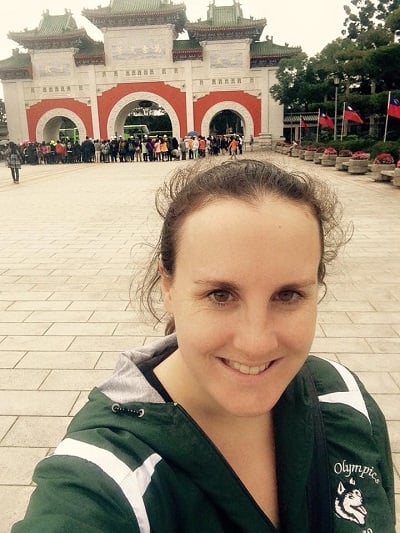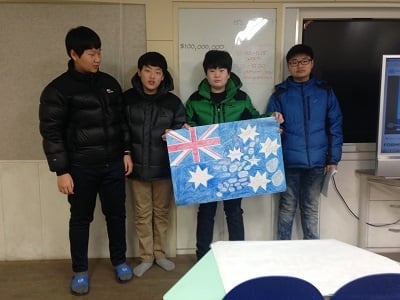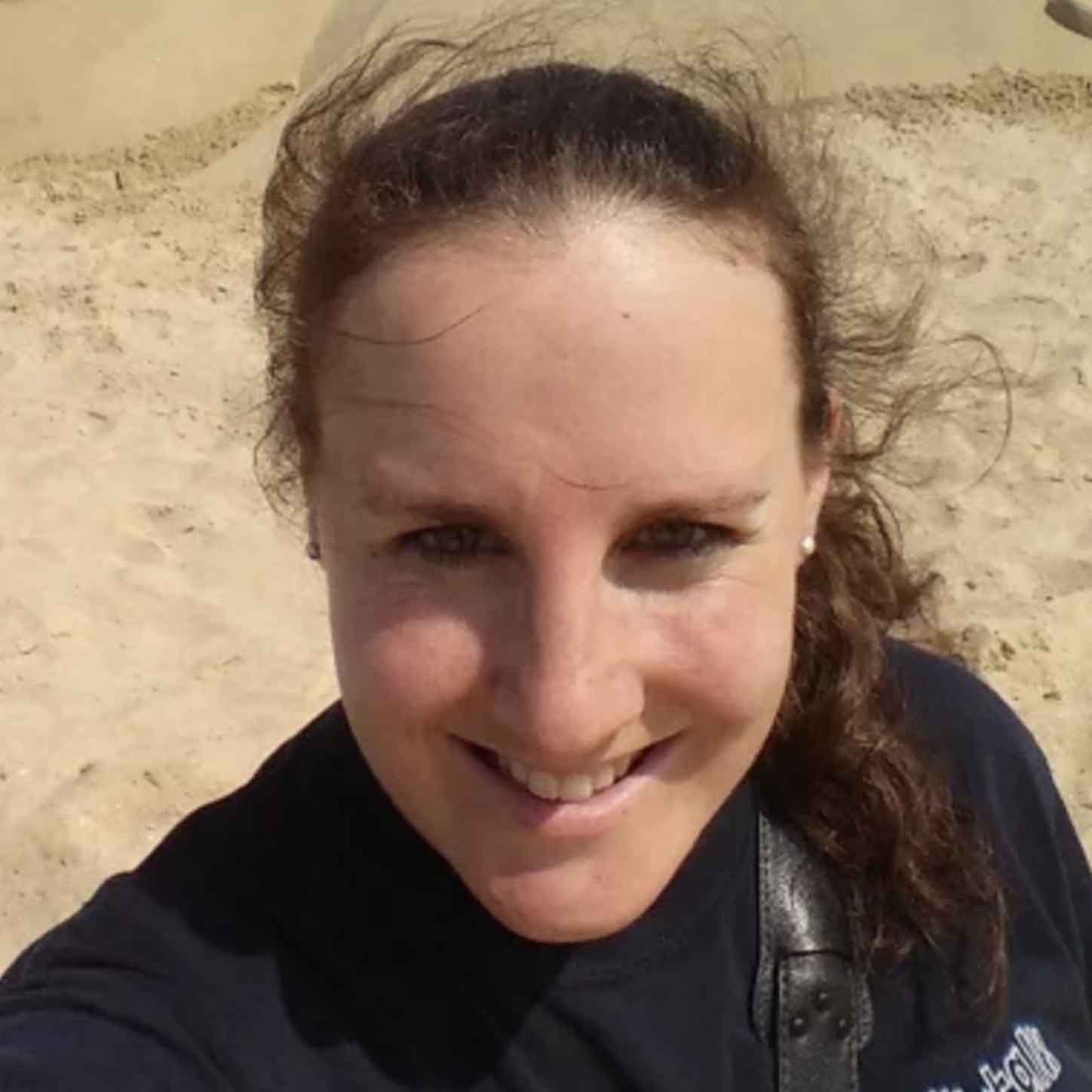9 Things They Don't Tell You About Living in South Korea
International TEFL Academy graduate, Cassandra Simons, shares her experience living in South Korea as an English teacher and lets you in on secrets you won't find in a guidebook.
Written By: Cassandra Simons | Updated: October 25, 2024
Written By: Cassandra Simons
Updated: October 25, 2024

One year ago, I stepped on a plane heading to Busan, South Korea, for a public school teaching contract. While teaching was familiar territory for me, TEFL was not, and living in East Asia was, well… foreign to me. I didn’t speak the language and didn’t know anyone where I was going. I read every article and book I could get my hands on, attempted to learn a bit about the country, and even tried to find social media pages to connect with people to help me.
Is South Korea a Good Place to Live?
Yes, South Korea is a fantastic place to live! It offers a blend of modern amenities, a rich cultural heritage, excellent healthcare, efficient public transportation, delicious cuisine, and a safe environment.
Read more: Teach English in South Korea
 There was very little in those articles that was of significant help. Sure, it is important to know about some cultural norms (don’t ever put your chopsticks upright in your rice). It’s nice to know about sights to see in the major cities (Seokbulsa Temple in Busan – totally worth the hike!). But it’s the things that most people DON’T tell you that would prepare you most. Maybe this list will help someone seeking life in South Korea to be at least a little more prepared than I was, and while you can never quite prepare for what you are about to experience, maybe you won’t be quite so shocked by some of the sights and questions.
There was very little in those articles that was of significant help. Sure, it is important to know about some cultural norms (don’t ever put your chopsticks upright in your rice). It’s nice to know about sights to see in the major cities (Seokbulsa Temple in Busan – totally worth the hike!). But it’s the things that most people DON’T tell you that would prepare you most. Maybe this list will help someone seeking life in South Korea to be at least a little more prepared than I was, and while you can never quite prepare for what you are about to experience, maybe you won’t be quite so shocked by some of the sights and questions.
1. Sensory Overload
Your sense of smell is going to go into overload… and it’s not always a good thing. Sometimes, you are walking down a street when a scent hits you full force, and you’ll be left with watering eyes wondering, “What IS that?!?!” One block down the road, and you’re greeted with some amazing chicken, bulgogi, shabushabu, you name it… and your stomach instantly starts growling. Breathing through your nose in Korea is like trying a Bertie Botts Every Flavor Bean: you never know if you’re going to get chocolate or vomit.
2. Seafood in almost every dish
Tentacles everywhere! I knew seafood was a common staple in Korea. What I was not quite prepared for was how hard it can be at some places to find a single dish without some kind of tentacle… or intestines. Granted, these are often at the more traditional Korean restaurants. If you are an adventurous eater, this won’t likely be a problem for you. For those a bit pickier like myself…. Learn how to say “no seafood”. Fast.
3. Drinking Culture
Soju… soju… soju! Koreans love their soju. If you believe that the Irish and Russians are the “best drinkers”, you are sadly mistaken, my friends. The average Korean can drink them under the table. After one particular lunch with a group of Koreans, I realized the extent of the drinking culture here. Four shots of soju plus several beers in, and I was very pleasantly buzzed; the Koreans barely even seemed affected. Lesson learned: do not challenge a Korean to a drinking contest. You will lose.
4. Lack of trash bins
Public trash cans are few and far between in Korea. You will often find a pile on a corner for trash collection, so many people will also stuff their trash there. This often contributes to some of the more unpleasant smells you’ll encounter while living in South Korea.
💡A bit of advice: invest in a reusable water bottle so you don’t have to worry about always finding a trash can.
5. No personal space in public spaces
Life in Korea is sometimes challenging. Personal space is almost non-existent, especially on public transportation. I have been on city buses where I literally could not move. The subways can also get quite packed, so be prepared. You had better at least offer to give your seat up if an older woman gets on or be prepared to bear the wrath of her death glare. Many will refuse to take your seat, but the offer is what they are looking for. Whether you are on a bus, a subway, or an elevator, be prepared to surrender any of that personal bubble you may like to usually have. And don’t be surprised if you smell soju practically evaporating from the skin of the older man in front of you, even if it’s 10 am on a Tuesday morning. I told you, the smells… you can never be 100% prepared for what you will get.
Go further: The Requirements for Teaching English in Korea
6. No question is off limits
Many Koreans will ask ANYTHING. Questions your great-aunt Betty wouldn’t even ask. I have noticed, as a younger woman – and clearly a foreigner – that in South Korea, I am especially subject to many questions about my marital status. When I first arrived I spent the first week or two getting to know my classes. Almost without fail, the first question in each class the boys would ask: “Teacher, are you married?” When I answered no, it was very quickly followed up with “Teacher, do you have a boyfriend?” In addition to these, here are just a few examples of other questions I have been asked:

- "Teacher, how old are you?” (OK, not that terrible)
- "Teacher, do you have any children?” (Odd for Koreans to think you’d have kids with no boyfriend or husband…)
- “Teacher, is that your boyfriend???” (Every time they saw me with a man).
- “Teacher, do you wear a bikini to the beach?” (Umm…. Pass?)
- “Teacher, did your boyfriend have a six-pack?” (Definitely pass.)
These questions are usually simply a way for Koreans to learn how to relate to you. If you are single and they are married, they want to find another connection. It is not meant in rudeness, simply curiosity.
Even if the extent of their English is “Hello, how are you? I’m fine, thank you.” I have had an old woman stop me on the sidewalk and, in what was clearly about the only English words she knew, “Hello, I lubba you”, which I can only guess was supposed to be “I love you”. Many of my lower-level students cheerfully shout, “Hello, teacher! Nice to meet you!” every time they see me.
Everyone also wants to know where I am from. I simply say “Migook” in Korean, which means America(n). More often than not, this is met with excited smiles and rambling about cities they know… usually New York City or LA. Any way they can connect to you is seen as an accomplishment, especially for those with limited English.
Go further: How Much Do English Teachers Make in Korea?
9. American influence in Korea
Koreans seem to love American/English brand items, movies, singers/bands, sports…. You name it. I have seen various sports caps and jerseys, the most common of which are either LA or NY. Some also have international soccer teams - Brazil seems to be a popular jersey - and a few of English soccer teams (Man United or Liverpool usually). My middle school boys are obsessed with anything to do with the Avengers, and their favorite singers are often Maroon 5, Jason Mraz, or Lady Gaga.
 Despite their obsession with American/English-speaking culture. They often have NO IDEA what it means or represents. One of my elementary girls had a Boston Red Sox hat on. When I pointed out the logo on the hat and said ‘Red Sox’ she gave me a blank look. The teacher translated, asking if she was a Red Sox fan, and the girl had never even heard of them. A friend had a student with a baseball cap that said in large letters “COCAINE”. He had no idea what it meant.
Despite their obsession with American/English-speaking culture. They often have NO IDEA what it means or represents. One of my elementary girls had a Boston Red Sox hat on. When I pointed out the logo on the hat and said ‘Red Sox’ she gave me a blank look. The teacher translated, asking if she was a Red Sox fan, and the girl had never even heard of them. A friend had a student with a baseball cap that said in large letters “COCAINE”. He had no idea what it meant.
This is not unusual at all for both children and adults. If they like the look of a shirt, hat or, pair of shoes, or whatever it is, they will wear it even if they don’t understand what it is or means.
Go further: A 6-Step Plan to Find English Teaching Jobs in South Korea
Life in South Korea is an adventure
Overall, living in South Korea has been a crazy rollercoaster of adventures and learning experiences. Some things you just can’t prepare yourself for and have to see and experience for yourself. My hope, however, is that these observations might at least make you aware of some of the things you’ll be getting yourself into if you ever consider moving to South Korea!
Do you want to get TEFL certified to teach English in Korea? Check out ITA's four-week TEFL Course in South Korea, the only accredited TEFL course offered in Korea itself. In addition, read more about ITA's Teaching English in South Korea Guaranteed Job Placement Program.
Posted In: Teach English in South Korea, Teach English in Asia, Busan
Cassandra Simons
Cassie is an American teacher who taught English in South Korea. She loves to travel and meet new people. Before moving to Korea, she spent 4 years teaching in the United States. In 2016, she moved to Japan to continue teaching English to students there.
Want to Learn More About Teaching English Abroad & Online?
Request a free brochure or call 773-634-9900 to speak with an expert advisor about all aspects of TEFL certification and teaching English abroad or online, including the hiring process, salaries, visas, TEFL class options, job placement assistance and more.








